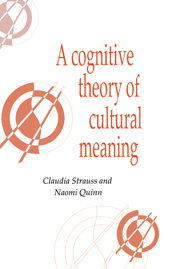Part I - Background
Published online by Cambridge University Press: 05 June 2012
Summary
Once upon a time we anthropologists believed in the concept of culture. Not only did we believe in it, we proselytized for it, arguing in articles, books, and speeches that typical patterns of behavior, personality, and belief within a society are rarely a biological inheritance (due to “race”) but are almost always socially learned ways of acting and thinking (due to “culture”). The idea of culture was to cultural anthropology what the cell is to biology or the unconscious is to psychoanalysis: a taken-for-granted basic concept within the discipline and our primary intellectual contribution to broader public discourse.
We were successful in exporting the concept of culture, to both academics in other fields and the public. Within the academy there are professors of literature doing “cultural studies,” historians specializing in “culture history,” and psychologists interested in “cultural psychology.” Outside the academy it is common to hear public discussions of “multiculturalism” and “cultural diversity,” “organizational culture,” or “the culture of poverty.” Psychiatrists, lawyers, doctors, and businesspeople are learning that they will be more successful if they take “cultural” factors into account.
Yet, surprisingly, the culture concept now sometimes finds itself more appreciated abroad than back home. Cutting-edge theorists in other fields invoke the culture concept, but cutting-edge cultural anthropologists criticize it. While valuable, these criticisms have sometimes gone too far, eliminating the idea of culture rather than reworking it. This book, by two cognitive anthropologists, proposes a new analysis of culture. It argues that in order to rethink culture, we need to understand how human beings construct meanings.
- Type
- Chapter
- Information
- A Cognitive Theory of Cultural Meaning , pp. 1 - 2Publisher: Cambridge University PressPrint publication year: 1998



